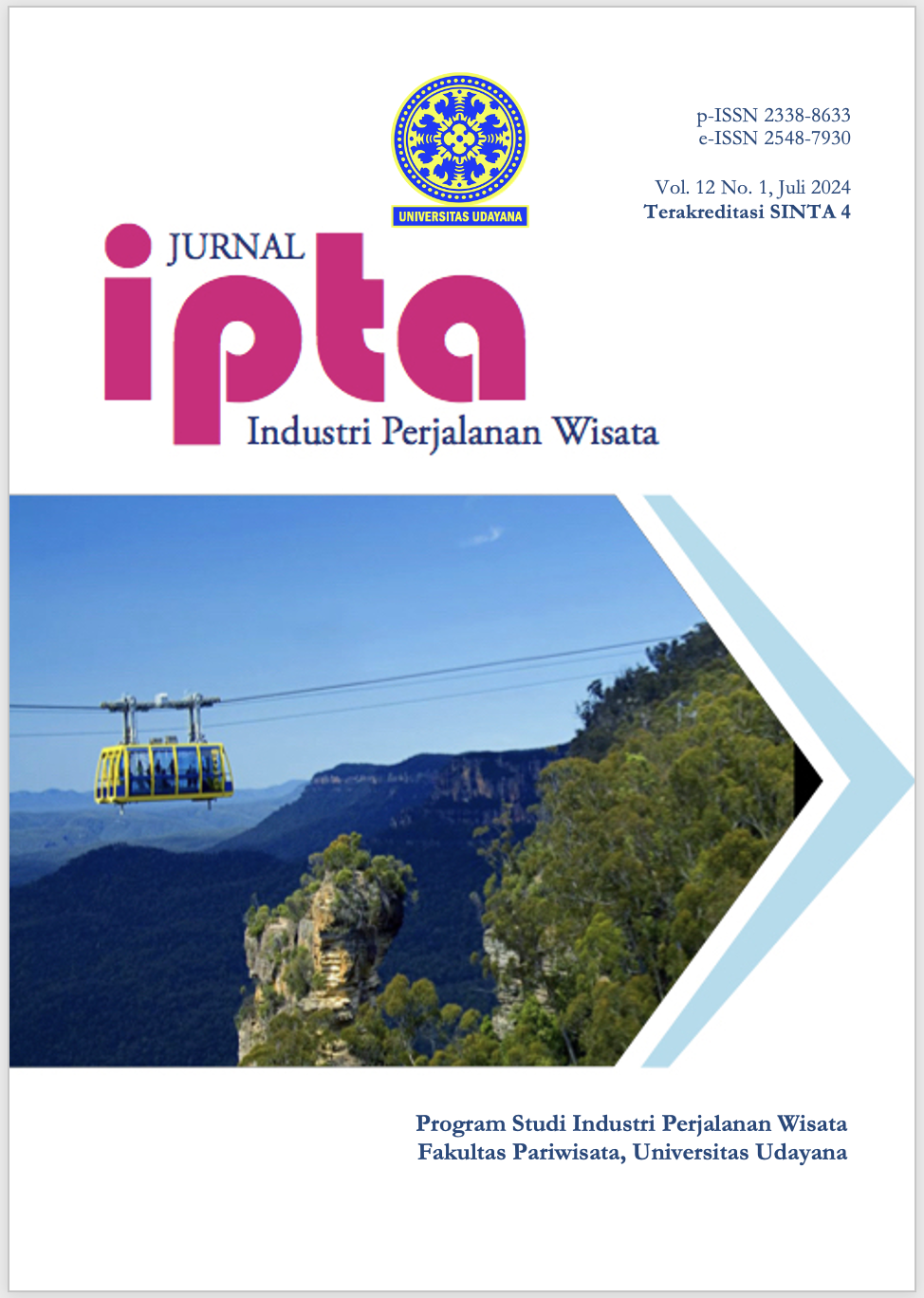FAKTOR YANG MEMPENGARUHI KEPUTUSAN WISATAWAN GENERASI Z KE BALI
Abstract
The younger generation is also called planners and trendsetters because of their ability to attract other people's interest to visit a new destination. This is also supported by the development of social media which makes it easier for them to market a destination indirectly. In addition, one of the travel styles that support this type of independent traveler is Backpacking. Backpacking itself is a style of travel with a limited budget, organized independently, has a flexible itinerary and takes longer travel time than other types of tourist trips. The younger generation referred to in this study are generation Z tourists. This research was conducted in Bali with purposive sampling techniques by distributing online questionnaires to 100 generation Z tourists who had traveled independently to Bali to then test validity, reliability and factor analysis. The results showed that there were four factors including institutional factors, romance factors, escape factors and leisure time factors. The dominant factor formed is institutional factors consisting of several indicators, namely the prestigious image of Bali, natural beauty, cultural attractions, facilities and infrastructure, culture, facilities and the presence of natural and artificial areas.
Downloads

This work is licensed under a Creative Commons Attribution-ShareAlike 4.0 International License.





